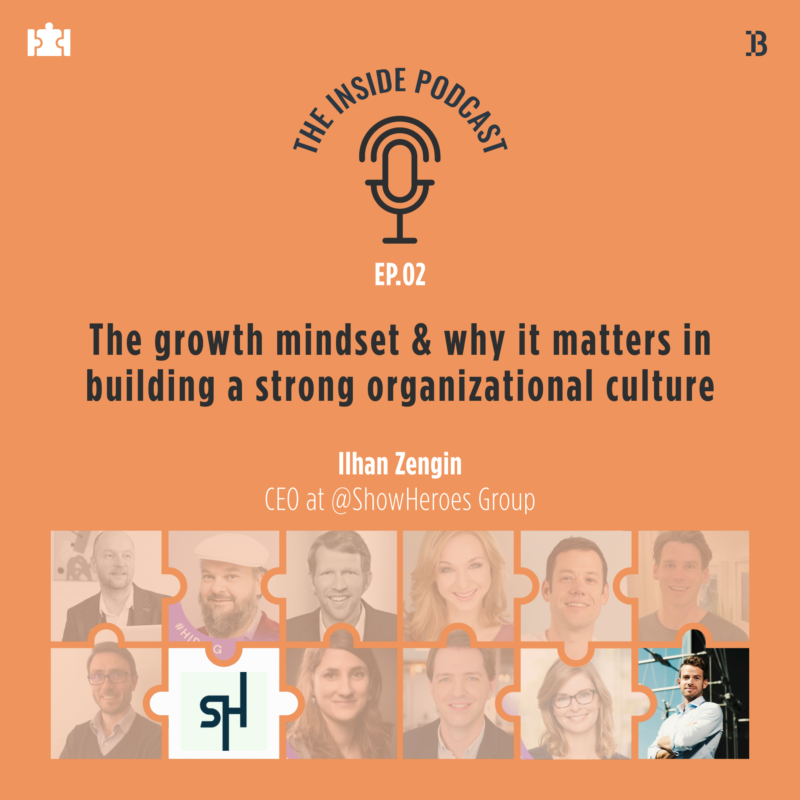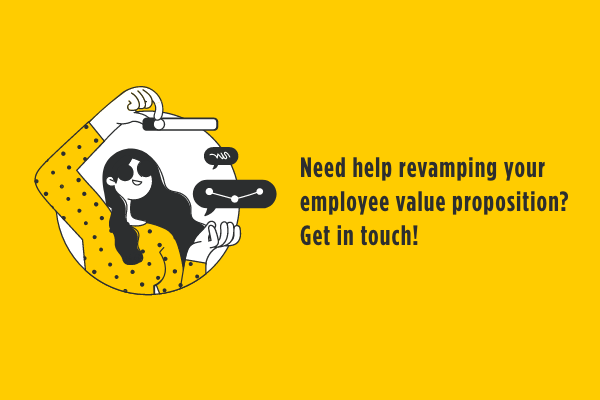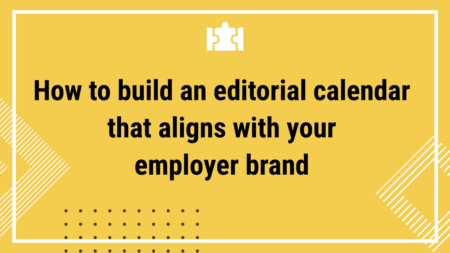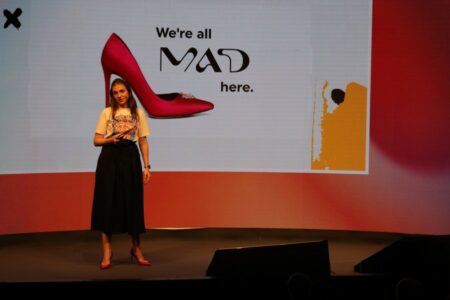Overview
Tune in for Ep.2 of Employer Branding: The Inside Podcast, Season 4! This time around, we had the pleasure of speaking with Ilhan Zengin, CEO at ShowHeroes Group. We talked about the importance of having a growth mindset to help build a transparent, honest company culture; but also about involvement, leadership mindset, the hybrid working model, and a lot more.
Spotify link in the comment section!
What you’ll learn by listening
- The importance of diversity in strengthening the organizational culture
- Leadership involvement in shaping the company culture: how much does it matter?
- The role of video in shaping company culture
- The hybrid working model reimagined
- LinkedIn, a social channel for networking not just for employer branding
About the company
ShowHeroes Group is europe’s most innovative digital tech & media group with a focus on video. With the tagline “Access Video” at its core, ShowHeroes Group serves as an umbrella for the following brands and solutions:
ShowHeroes: the leading, independent provider of instream video solutions for digital premium publishers and brands in Europe, driven by semantic technology and content.
ShowHeroes Studios: offering scalable video production across content, advertising and other assets.
Viralize: a SaaS multiformat supply- and yield management solution for small to medium sized digital publishers in Europe.
UNION Media: a strategic partner for large European programmatic buying hubs, which was founded as a joint venture of four video companies, led by ShowHeroes Group.
The Digital Distillery: an exclusive event format and content platform.
Garage: a digital innovation hub, exploring the intersections between video, content, SaaS and advertising.
Enjoy listening to S04Ep.2 of Employer Branding: The Inside Podcast!
Podcast transcription
Georgiana: Hi everyone! This is Georgiana with a new episode of Employer Branding: The Inside Podcast. Today we’ll be speaking about leadership and company culture with someone who works in the marketing environment. His name is Ilhan Zengin. And he’s the CEO of ShowHeroes Group. Hi, welcome!
Ilhan Zengin: Hey, Georgiana, how’s it going?
Georgiana: I would like to ask you first, Ilhan, before we dive into the topic of company culture and leadership, to tell me a little bit about what your company does and about your current role. Maybe a little bit about your previous role as well.
Ilhan Zengin: Yeah, sure. I mean, ShowHeroes Group is the leading company in Europe for digital video advertising solutions for online publishers. Also CTV, OTT publishers, and brands and media buyers on the other side. So what we do is we provide media owners with technology, and content and monetization solutions.
Whereas on the other side, we connect them to potential buyers, like different advertisers, agencies, you know, tier one brands out there who would like to advertise on those publishers real estate. And we enable that real estate with video content that we produce, but also with contextual semantic targeting, that we have developed in house.
And we used to match the video content with relevant pieces of content articles. So we actually turn written articles into video articles, if you will. And therefore, we create new video space for advertisers who want to do video advertising such as on TV. That’s basically what we do in a nutshell. But we have emerged as the leading company in our space in Europe of more than 350 employees, I think it’s going to be more than 600. Before the end of this year, we have acquired a couple of companies over the last five years. So in the last two years, we acquired more than five companies. And there’s going to be more to come in the future very soon.
So I mean, quite a long way, in a short period of time, we are active in more than 20 markets, more than 25 offices, we always have been looking very decentralized, even prior to COVID, something we can talk about in a sec as well. And yeah, I’m the founder and the CEO of the company, obviously, I have a couple of co founders, and a senior exit management team that gets the work done next to me.
And previously, before I started this company, as I said, around five years ago, I was also working in the media space for a company in Berlin. And yeah, after that exit, I was internationalizing that media product globally in Asia, the US all over Europe. And at some point in time, I felt that it was time to turn back the clock again, and start from the beginning. And obviously apply over the learnings that I made along the way. And yeah, but focusing on the major trends that were, you know, very obvious for me, but globally, speaking five years ago, when we started ShowHeroes Group, and they’re still very relevant today. And those trends are video and contextual. And here we are today, but it’s basically how the whole journey started.
Georgiana: And since you were mentioning trends in marketing, but trends, nonetheless, let’s talk a little bit about diversity and inclusion. You know, it’s sort of been the keyword this beginning of the year, and this past year, the past year as well. How important is diversity in strengthening the organizational culture for your company, but for any company in general?
Ilhan Zengin: I think it really has to do with how you interpret the term diversity. If you interpret diversity, from a very narrow-minded point of view, which would imply that diversity is reflected by different cultural backgrounds or different looks, or different genders, right, which could also be the case, honestly, I don’t think that this is what you should be looking at. At least this is nothing I’ve ever looked at when I started this company.
Like we never started the business and said, Oh, like and by the way, next to the product, and the sales and the product market fit and the fundraising, we should think a lot about diversity. I mean, no, never had that in my mind. Because in the beginning, what you try to do is need to try to survive and build a business, which can carry itself and which provides benefits and value to our customers and to the end users.
So this is what’s on your mind when you start a business. And honestly speaking, nothing else should be on your mind. However, if you interpret the term diversity in a way that is field should be interpreted as, and meaning you should try to bring a group of people together with diverse skill sets, right and all across the board, then obviously, it’s very important implicitly. And if you then take a step back and think about where would the diverse skill set come from? Well, then you are basically, in the end of the day, also, you are going to include the more how to say that nevermind that type of diversity, meaning that the more ethnics the more different cultures, the more genders I have in my company, the more likely I’m going to get the diverse skill set, right?
Because people come with different experiences and backgrounds. So implicitly, I do feel it’s automatically covered if you want to build a great and sustainable business. And I think this is also why we have built a rather diverse company until today, simply because you were looking at, you know, soft skills, but also quantifiable skills in order to provide the best product for the end user and obviously, also an order to provide the best working environment for our colleagues. And I think if you want to do that, automatically, you are going to hit the diversity button at some point in time.
Georgiana: Absolutely. And actually, I’m happy that you coined the term in this way, because quite a few of our guests recently have spoken of diversity in exactly the same way. And that really makes me happy and hopeful that in companies in Germany, recruiters are not going to be as narrow minded as they sometimes are.
Ilhan Zengin: Yeah, fingers crossed. No, I mean, I’m honest. Everything I say is how I actually feel about that. And I could also brag and say that, you know, for me, it was important at the beginning to realize a quota of different cultural backgrounds or genders. I never had that in my mind.
Honestly speaking, but also at some point in time led to a management board with for instance, only men. So obviously, I was asking myself, but not necessarily what I would want, like from a personal perspective. And also, by the way, from a business perspective, because I am 100% convinced that like, as I said, diversity makes up for better quality in the short, mid and long run. So when I was looking at the board, and I was feeling like shit, like it’s basically a lot of men like, well, all the women.
And I was asking myself, like, how did that happen? And I realized that, and by the way, today, we have a very diverse board. But it was a little different a few years ago, and it simply happened, because there were no women applying for the job. What can I say, you know, basically what it was, and don’t have time to wait until you know, you find someone who has a difference that doesn’t make any sense. And you need to do what you have to do in order to have the business fall. But if there is no one who is suitable, who has like a, you know, a female background, then you go with the men, but it’s very diverse, it’s not ideal, but at least you’re surviving.
Georgiana: How? How much do you think leadership should be involved in shaping the company culture? And how much do you get involved? Personally,
Ilhan Zengin: I think leadership is very important. I mean, it also changes over time a little bit. Because when you start as a real startup the way we did five years ago, and you basically have like five employees, and out of those five, three, or your co-founders, including yourself, so you basically have only two employees.
And the other two are your co-founders. And well when they start really about leadership, because what you do is basically working, like in all different departments as operational as possible. And that’s what everybody is doing. And everybody knows who you know, everybody, so, like you’re 100% aligned, as far as your mindset, your company culture, like everything is concerned, okay. Big leadership, I think, is something that is required to show other people that certain things are possible, how certain things could be done to inspire people to give people hope. As I said, giving people passion, like all those things, gives them direction and guidance, right? If you have five people and the other three or two are co-founders, like there is no need for that. I mean, ideally, everybody knows each other and we’re going to send directions anyway.
Ideally, the bigger the company gets, the more important it is, but there is leadership inside of the company. And yes, I mean, as the CEO, of course, you put definition are the number one leader because this is your job as the CEO, I mean, you are the representative of a company, you talk to investors, you talk to the media, you do podcasts, you do marketing, you do PR but you also sell the product on all different stages and all different layers and levels.
So if you cannot lead the company who can, right? I mean, this is something you have to be aware of, and you have to be comfortable with. Otherwise, it’s not the right job for you. But it doesn’t necessarily mean that I consider myself as the best possible leader for all different scenarios, I do feel that there are a lot of different layers, or a lot of different aspects of leadership, especially in big internationally working companies that scale up really like ours.
We do have a lot of leaders in our company today, right? I mean, a lot of leaders in different fields, we have different hierarchies, from SVP to a VP to a global director to enhance an A team lead level. And those guys are all leaders in their respective departments with their respective qualities and cultures, and teams, and so on and so forth. And I think that it is crucial, because if you don’t have that, you cannot scale, you cannot scale.
And especially not if you want to scale all across the globe as we are doing it. And for me, the most important part, of course, is that we have regular, for instance, global check ins, like a townhall slash all hands meeting once a month. And this is where I try to get virtually in front of everybody. And this is like my major touchpoint with the company as a company as a whole, right. But obviously, I do have regular check-ins of all the other leaders in the pyramids, and I try to make sure that we are all aligned as far as our you know, company values as far as our guiding principles are concerned.
Georgiana: And now switching a little bit to the context of marketing, but still sticking to employer branding. I’m wondering, is there a way video can become super important when it comes to employer branding or shaping the company culture? How has it been for you guys, since you are working with video? So to say all the time?
Ilhan Zengin: So interesting question, I do feel that it, especially for big corporations, is becoming more and more important, especially doing, you know, processes that can be standardized, like onboarding, for instance. So the biggest change, I mean, first of all, you have to understand that we are a video company, but that doesn’t necessarily mean we are using videos to communicate with each other all the time.
I mean, other than, you know, obviously, video chat, right. So obviously, video chat, and conferencing is number one. Without that the business wouldn’t exist. I mean, honestly, not, especially now in times of post COVID or during COVID. But for us, even free COVID I mean, as I said, we are a company with more than 25 offices, more than 20 markets. It’s just we have to communicate every single day, and I’m living in Berlin, our headquarters are in Berlin, but it’s by far not the biggest office. And I’m not at the office too often. And simply because we are running out of space. But also because most people I’m working with are in Berlin.
So it doesn’t really make a difference whether I’m sitting at the office or at home, because I have to go video-conferencing with them all the time. All anyways. And that has been like that from day one kinda. So video conferencing is very important. Secondly, and videos for onboarding very important recording videos, explaining, you know, how the company works, how the different departments are working, having deep dives for respective, for particular onboarding for, I don’t know, like, like certain departments obviously will require like different information and knowledge as a foundation compared to others. Right? So there’s generic stuff, there is more specific stuff.
And that is really standardized. So for instance, as learning in the beginning, what we did is, we had more or less standardized onboarding with department leads for everybody. But then as the company was growing so exponentially, basically, bed would have required so much additional, you know, time and from those departments leads to basically onboard new people all the time. But we really understood that this is not scalable.
So we came up with a lot of videos have you produced ourselves since this is what we are also good at, or we recorded to actually have standardized digital onboarding sessions which are available on demand, right, so everybody can basically during the onboarding process, go through the generic and even some more deep diving and onboarding procedures without having to consume someone else’s and time too much. And Dev is just one example where video I do feel it’s very important also for internal communication, whenever you want to standardize stuff that you don’t want to write down but you think okay, you could actually add more value more information to the mix when you record it because you will add also the voice over and you we’ll add like different visible layers, if that makes sense.
Georgiana: You were mentioning at some point that you’re in video conferences with your colleagues all the time. Does this mean that you guys only work remotely? Or is it a hybrid model? How do you stay engaged when some people are remote and some are in the office? Yeah, I guess.
Ilhan Zengin: I mean, definitely, I was just like thinking, because I think the worst case scenario actually is, if it’s a mix, for instance, you have a video call with where, and that happens all the time, because actually, we’re like five people, or six, or seven or eight, are behind one screen in one office, and five on separate screens, that creates a weird wipe, because five are sitting together, but they are on the same call back as one basically, whereas the other five, they are like the different places, and stuff like that, actually, I’ll think is, it has a lot to do with meeting culture and learning process, you have to, you know, go through, you have to have guidelines to understand how meetings usually conducted, how to act to behave, how to structure yourself, how to take notes, how to store them, and so on and so forth.
But generally speaking, to answer your question, do we have a hybrid model? Yes, we, yes, we for sure we do. Because our principles are very much different from market to market. Like in Italy, for instance, I do feel that most of our colleagues are going to the office all the time now. But they couldn’t go for almost a year or even two years, especially in our middle office, because of COVID. It was basically, yeah, prohibited, like allowed to go there we see in Germany, they could basically go all the time, of course, we were going with reduced capacity, and we had to make sure that you have enough space. And you know, the hygiene means and measures are all in place.
But like they could, they could always go if I really wanted to. Right. So it is really different from country to country. Like in some countries we had locked down like in Latvia, we had locked down. Whereas at some point in the Netherlands, everybody was at the office. So we have like SSL physical offices with a lot of people in basically all major cities all over Europe, and also in Latin America, in the US. So it really differs, we don’t have this global principle that says, Okay, we are remote, or we’re not remote, you really play by the rules, obviously, of every local jurisdiction and legislation.
That’s one. And then number two really is we also play by what, you know, our colleagues won for themselves, and what has proven to be a just a sort of a model, really, I mean, giving out guidelines saying that, Oh, like you always have to come like three days a week or two days a week or stuff like that, maybe it will come at some point in time. But for the time being, especially here in Germany, we are very flexible. And I do feel it has a lot to do with company culture and trust. And the way this company has managed from day one, that has never turned out to be a problem for us, like we are a diverse company, in terms of people working at ShowHeroes Group, but we are also a diverse company in terms of where everybody is working from. And we are very inclusive in terms of, you know, how we carry ourselves as being like one family and as practicing one culture as a company. So for us, it has never been a problem. Hopefully, it’s not a problem for other companies either. Yeah, but and therefore we are hybrid, but we are very flexible.
Georgiana: I checked your LinkedIn profile before inviting you to this podcast, and they saw that even the company you are running has a very, very strong presence on LinkedIn. So I imagine that you use it for your employer branding efforts as well. Would you say this is the number one channel for you, Show Heroes Group? Are there others that you think are good or useful when developing?
Ilhan Zengin: There are other channels. Like in some markets, there are like Employer Branding, corporate culture platforms where you can have forgotten the name welcome to the jungle or something is one in France, for instance. I just got to know about like a few days ago, because our French team was basically uploading their profile to the platform, which I found actually interesting. So we don’t have that in Germany, I think. But there are different platforms.
So it depends on the market level. I guess. Globally speaking for sure. LinkedIn is the number one business that works, I mean, definitely. And employer branding on LinkedIn is a thing. I’m not necessarily saying but doing paid media on LinkedIn for recruiting is necessarily worth all the time cost benefits. I’m also the one guy to ask you, I mean, I’m not overseeing that part of the business. I just know that we don’t get it. I’m very sure we don’t get the majority of our recruiting leads that are actually, you know, converting into future employees from LinkedIn. I don’t think so. So platform wise, I mean, if it comes to job hunting, we use all the usual suspects.
I also do think it depends a little bit on the position, what you’re looking for. I think the more senior it gets, the less platforms you need. And the more you would go through actually in your network. And the more junior it gets, actually, I think you could actually go on social media, right? And do Instagram or Tiktok, or whatever, if you want to have an intern or a junior. So it kind of depends what type of profile you’re looking for. But employer branding on LinkedIn is for sure, I mean, we do LinkedIn a lot for employer branding, but also for business planning for corporate branding, right. So just the industry knows, where do we are, we are out there, what services are we providing? And for that, I also must honestly say, I’m happy that a platform like LinkedIn does exist.
Because if it wasn’t existing, like, where else would you exchange the type of information? I mean, I think it is important to have one or two platforms out there for business purposes, where you can post stuff like webinars or cases you did, or new customer relations, or interviews, or podcasts or articles. I mean, it is also interesting, I must admit, I’m not just doing that, because I do think we have to as a marketing channel, of course, that’s part of it. But also, personally, I think definitely has, has had to say that like, there is a reason why it exists and people like it for the most part.
Georgiana: Ilhan we’re sort of approaching the end of this episode. And so I’d like to know, if there is something that’s really helped you along the way, you know, I asked my guests if they can recommend a book, or I don’t know, a support group of some sort. But what do you feel has helped you get where you are? It can be someone else, a group of people, whatever.
Ilhan Zengin: So related to what topic? In general?
Georgiana: Yeah. In general, not necessarily Employer Branding, what do you feel has helped you stay strong at all times? Or stay motivated? Because for sure, it’s difficult to be motivated and involved 100%. As a CEO, whenever there’s so many people involved, what do you feel is owed to you?
Ilhan Zengin: Yeah, I mean, I have heard that question. You know, ask in different ways and nuances in the past, but what I’m always saying, and I think that, that definitely, you know, have true for myself is there’s nothing in particular, like no, no group of people, No book, no, nothing. I think what has helped me is really my, it sounds, maybe maybe it doesn’t necessarily sound very, how to say that, like empathic or something like that, but it’s really like my personality.
And it’s just, you know, it annoys me a lot to not get to the point where I, I want to be like, generally speaking, like, whenever I have a feeling that something is holding you back, or preventing you from reaching your goals, whatever that may be. Like, generally speaking, this is something that pisses me off big time. Like as a person, like, I just can’t stand it. And like, like this type of, you know, mindset, really, really has helped me and is still helping me to, to reach where I want to be at.
And that’s really about it. So all of a sudden they have major setbacks, all the problems, issues and challenges we have been facing in the past and we are still facing today. Our thing you know, overcoming them is, is a decision that you make, and it’s an attitude, it’s kind of your mindset, and this is something I had since I was born. So it’s not always a good thing, because it can also put a lot of weight on your shoulders, because you you can never really chill and the idle and rest of that, but it really helps you to push through if push comes to shove, and I never read any books or talk to anyone to actually get to that point. I mean, this is just who I am. So that’s a recommendation. Sorry, it’s nothing I can recommend you to try out.
Georgiana: Maybe indirect recommendation to focus on your mindset. develop the drive necessary, regardless of the setbacks you encounter, because I’m sure all of us do, and we’ve all thought of quitting.
Ilhan Zengin: Yeah, for sure. For sure. I mean, like, if you want a recommendation, yes, but it sounds very cheap and pathetic and cliche. But hey, I mean, I honestly believe that it’s true. In the end, it’s a question of how deep can you take? And how convinced can you be of yourself and new ideas. And maybe you can be very convinced. And if you can dig very deep Lee, when at some point in time, you’re going to succeed. That’s basically what it is.
Georgiana: Yeah. That’s actually very motivational as a matter of fact. This was a lot of fun, a lot of useful takeaways. Thank you so much for talking to me today. And I wish you all the best in growing the company even further.
Ilhan Zengin: Thank you so much, Georgiana.
This was Employer Branding: The Inside Podcast. You can find our podcasts on Spotify on Apple podcasts and content on employer branding-related things on employerbranding.tech. Until the next time, stay tuned.







